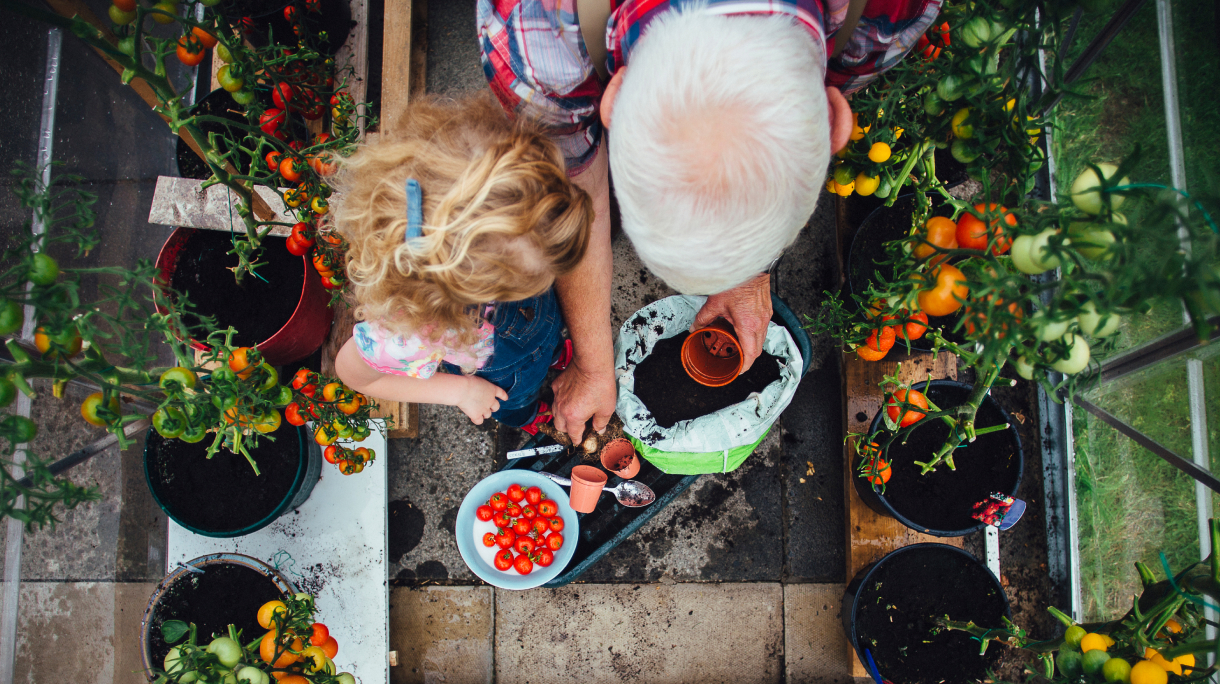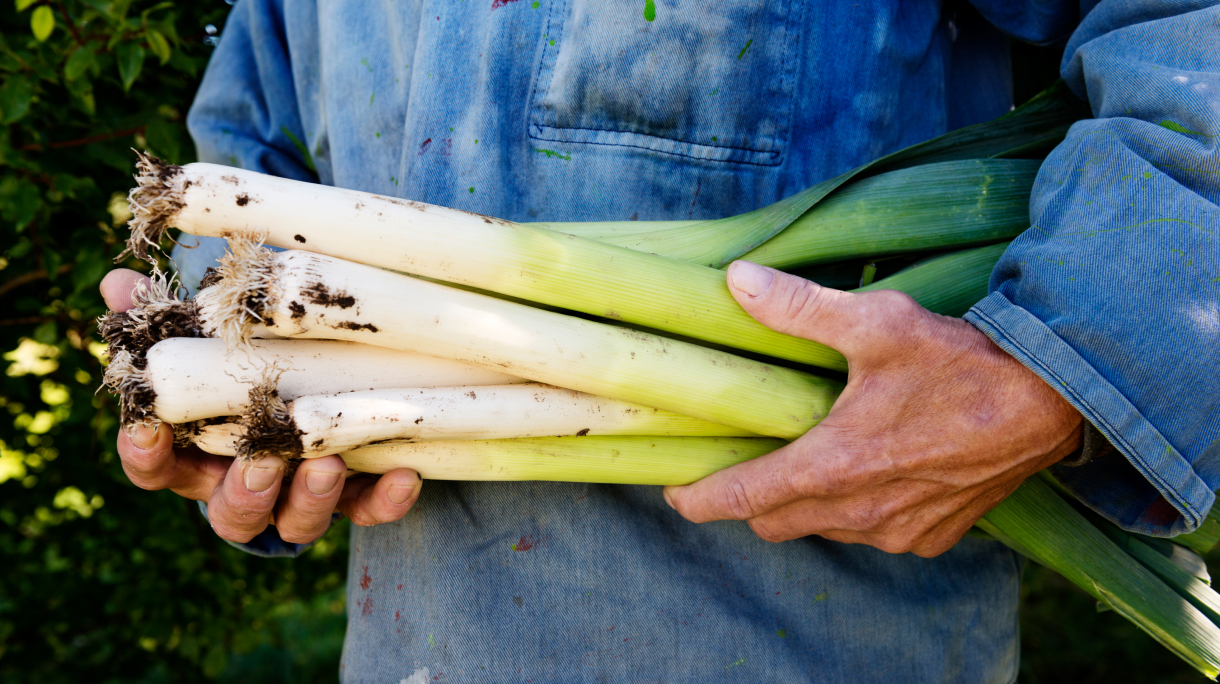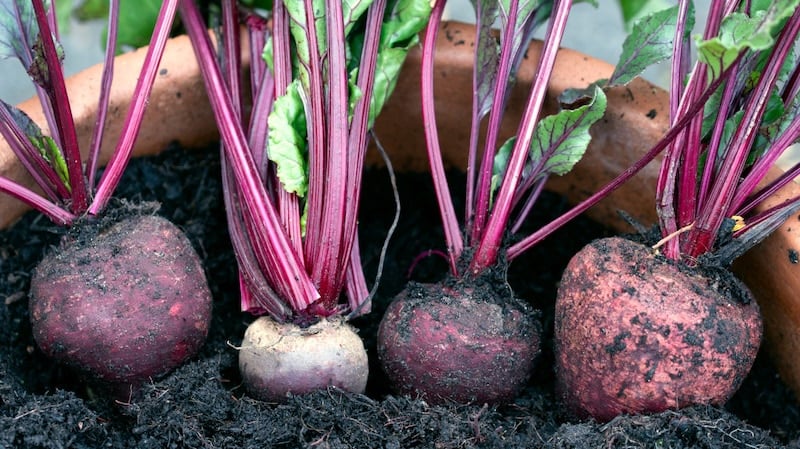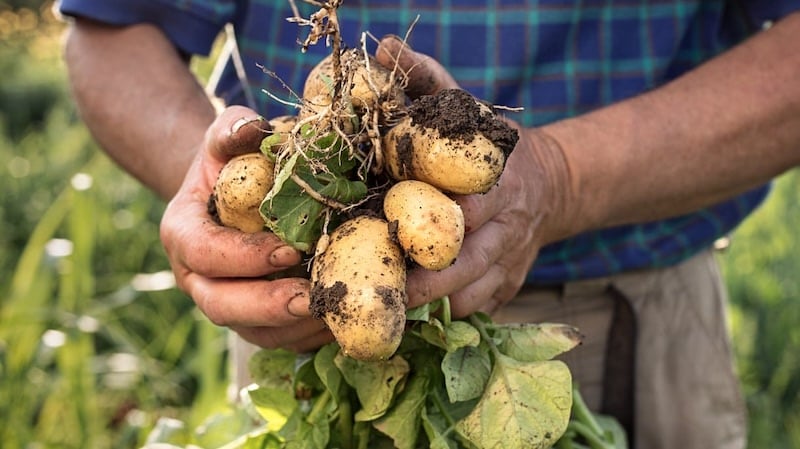A Year-Round Guide to Growing Fruit and Veg
Growing your own fruits and veggies is not only a sustainable choice but also a fun and rewarding way to enjoy fresh produce right from your garden.
Before you dig in, it’s helpful to plan ahead. Understanding what to plant and when ensures a bountiful harvest throughout the year. With a bit of preparation, you’ll soon savour your own delicious, homegrown food—and might even have some extra to share or preserve!
Where to start with homegrown vegetables
Before you start planting, it’s a good idea to take a few preparatory steps to ensure you get the best possible harvest. Planning ahead can make all the difference in enjoying a bountiful and delicious homegrown garden.
- Find a good patch for your vegetables. Make sure it’s not in a very dark, shady spot. If you don’t have a garden you can even use pots on a well-lit balcony or windowsill.
- Prep your soil by breaking up any lumps with a fork. If you’re growing veg in pots or raised beds, fill them just over halfway with planter soil. For patches in garden soil outside, fill the gaps you’ve made with compost.
Once your preparation is complete, you’re ready to grow your own vegetables
Making Preparations and Planting in Spring:
As the weather can be a bit unpredictable during springtime, it’s generally best to wait until the end of March before sowing hardy, easy-to-grow vegetables like spinach, lettuce, and carrots in your vegetable patch or allotment.
At this time, it’s also a good idea to protect new spring shoots from slugs. You can start more vulnerable crops and young plants indoors to shield them from the elements.
Spring vegetables to sow and plant:
- Broad beans
- Cabbages
- Lettuce
- Onions
- Spinach
- Carrots
- New or seed potatoes
Spring vegetables to sow indoors or in a greenhouse:
- Tomatoes
- Aubergines
- Peppers
- Chillies
- Vegetables ready to harvest in Spring:
- Purple sprouting broccoli
- Cauliflower
- Kale
- Leeks
- Forced rhubarb
- Savoy cabbage
Planting and Harvesting in the Summer Months:
May marks the beginning of the summer months, which means warmer temperatures that you can (generally) rely on. You can also start to enjoy your first delicate salads and sweet spring cabbage of the year.
Towards the end of May is an ideal time to focus on moving plants that you started growing indoors, like tomatoes and cucumbers, out into your vegetable patch. Make sure to regularly hoe off any weeds before they get out of hand.
In June you can begin to harvest the veg crops that were sown in the spring. Vegetables to grow in July include new potatoes, but as summer is well underway, you can also expect your vegetable patch or planters to be bursting with salad leaves, vegetables, and berries.
As the sun shines in August, expect heat-loving crops such as tomatoes, chillies, and cucumbers to be thriving. You may also be able to grow vegetables that are usually imported, like aubergines and peppers, in your garden at this time of year too.

What to sow and plant in summer:
- Cabbages
- Cauliflower
- Courgettes
- Cucumber
- French beans
- Runner beans
- Parsley
- Pumpkins
- Squash
- Sweetcorn
- Tomatoes
- Lettuce
- Fennel
- Kohl Rabi
- Pak choi
- Parsley
- Rocket
Fruit and vegetables to harvest in summer:
- Asparagus
- Lettuces
- Radishes
- Rhubarb
- Spinach
- Spring cabbages
- Spring onions
- Baby carrots
- Broad beans
- Chard
- Courgettes and summer squash
- Currants
- Gooseberries
- Lettuce and other salad leaves
- Strawberries
- Beetroot
- Blueberries
- Cabbage
- Carrots
- Cherries
- Cucumbers
- French beans
- Loganberries
- New potatoes
- Peas and mangetout
- Raspberries
- Runner beans
- Shallots
- Tayberries
- Tomatoes
Growing Fruit and Veg in Autumn:
If you’re wondering which vegetables to grow in September, remember that it’s probably the most successful month for produce grown in the UK. The salads, tomatoes, courgettes, cucumbers and runner beans of summer will still be productive. But, you also have apples, pears, squash and leeks that will be almost ready for the autumn harvest.
Late autumn is the season of tasty and nutritious root vegetables. As the nights draw in, then autumn is the perfect time to enjoy hearty stews, bakes, and soups using seasonal fruit and veg. November is also the ideal time to sow broad beans in your vegetable patch ready for next year.

Veg to sow and plant in autumn:
- Broad beans
Fruit and vegetables to harvest in autumn:
- Apples
- Beetroot
- Blueberries
- Broccoli
- Cabbages
- Cauliflower
- Carrots
- Celeriac
- Celery
- Chard
- Chillies
- Courgettes
- Cucumbers
- Fennel
- Figs
- French beans
- Jerusalem artichokes
- Kale
- Leeks
- Lettuce and other salad leaves
- Marrow
- Onions and shallots
- Parsnips
- Pears
- Potatoes
- Plums and damsons
- Quince
- Raspberries
- Rocket
- Runner beans
- Spinach
- Sweetcorn
- Shallots, onion and garlic
- Swede and turnip
- Tomatoes
- Winter squash and pumpkins
Vegetable Gardening in Winter:
In the cold weather of winter, you’ll still find plenty of tasty vegetables to eat. Parsnips, swedes and leeks will be at their best this time of year, so there is a lot to look forward to.
January however is a great time to focus indoors. Nutritious microgreens, herbs and salad leaves can be grown in window boxes or pots. February is the perfect time to start planning your veg patch and ordering your seeds ready for sowing in spring.
Vegetables ready to harvest in winter:
- Kale
- Parsnips
- Savoy cabbage
- Brussels sprouts
- Carrots
- Cauliflower
- Leeks
- Parsnips
- Purple sprouting broccoli
- Savoy cabbage
- Brussel sprouts
- Cauliflower
- Kale
- Swedes

Enjoy your home grown veg in winter
December and the cold winter months are the time to enjoy all of your hard work from the previous months. Whether you’re tucking into a fabulous Christmas dinner with home grown trimmings or making a favourite soup as a winter warmer.
Fruit and veg to harvest in winter:
- Brussel sprouts
- Carrots
- Cauliflower
- Kale
- Leeks
- Potatoes
- Savoy cabbage
If you’re passionate about gardening, our Beyond The Grid hub is the perfect place to find more tips and inspiration to help your garden flourish.

